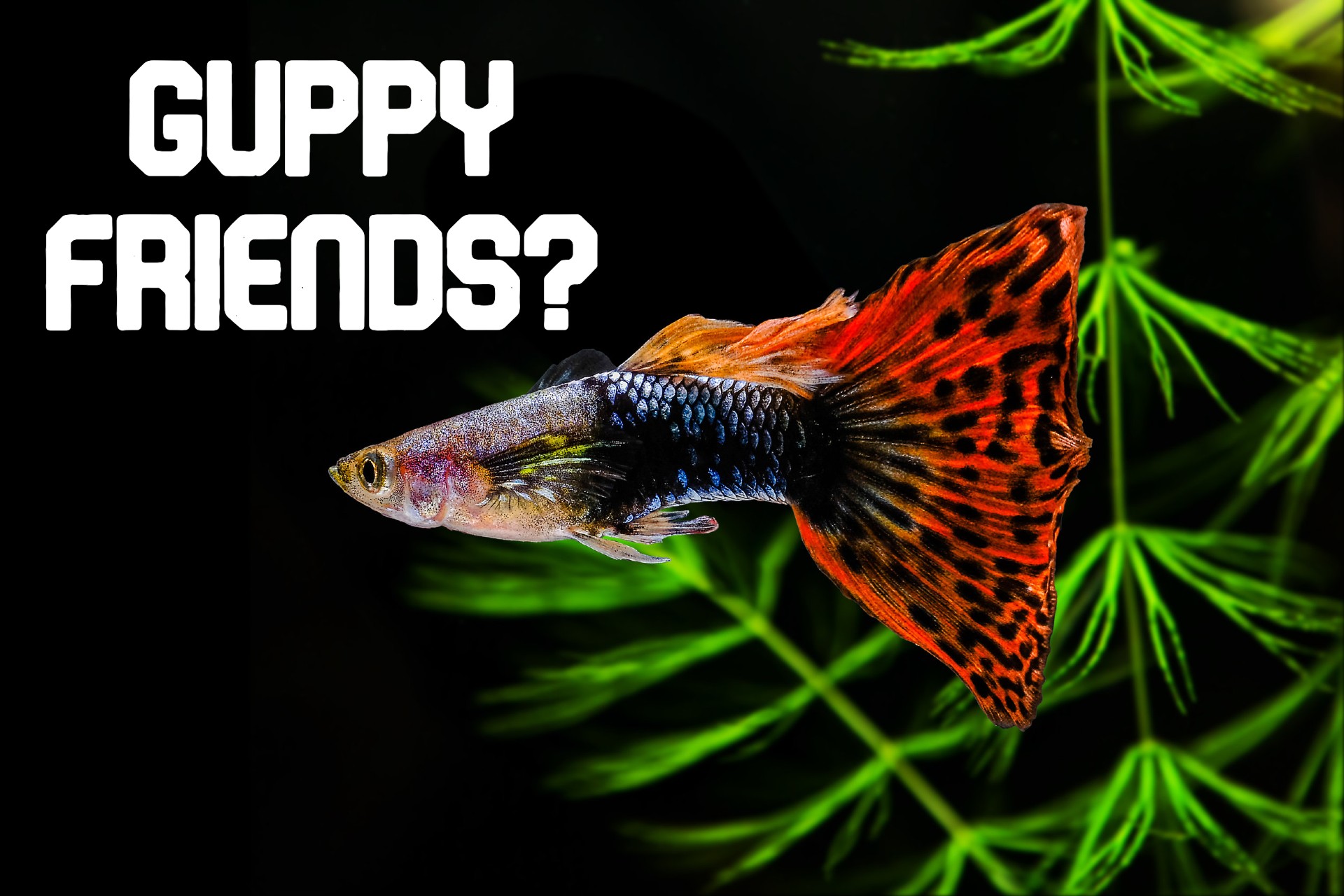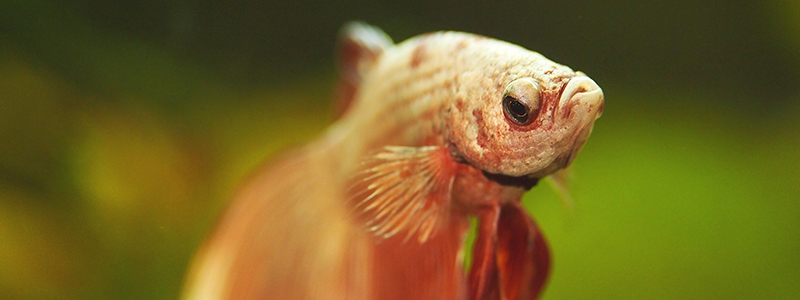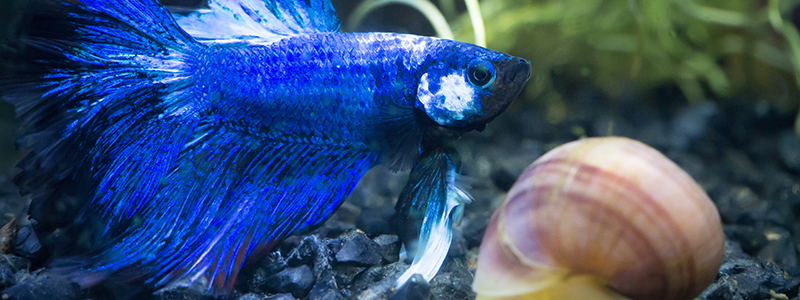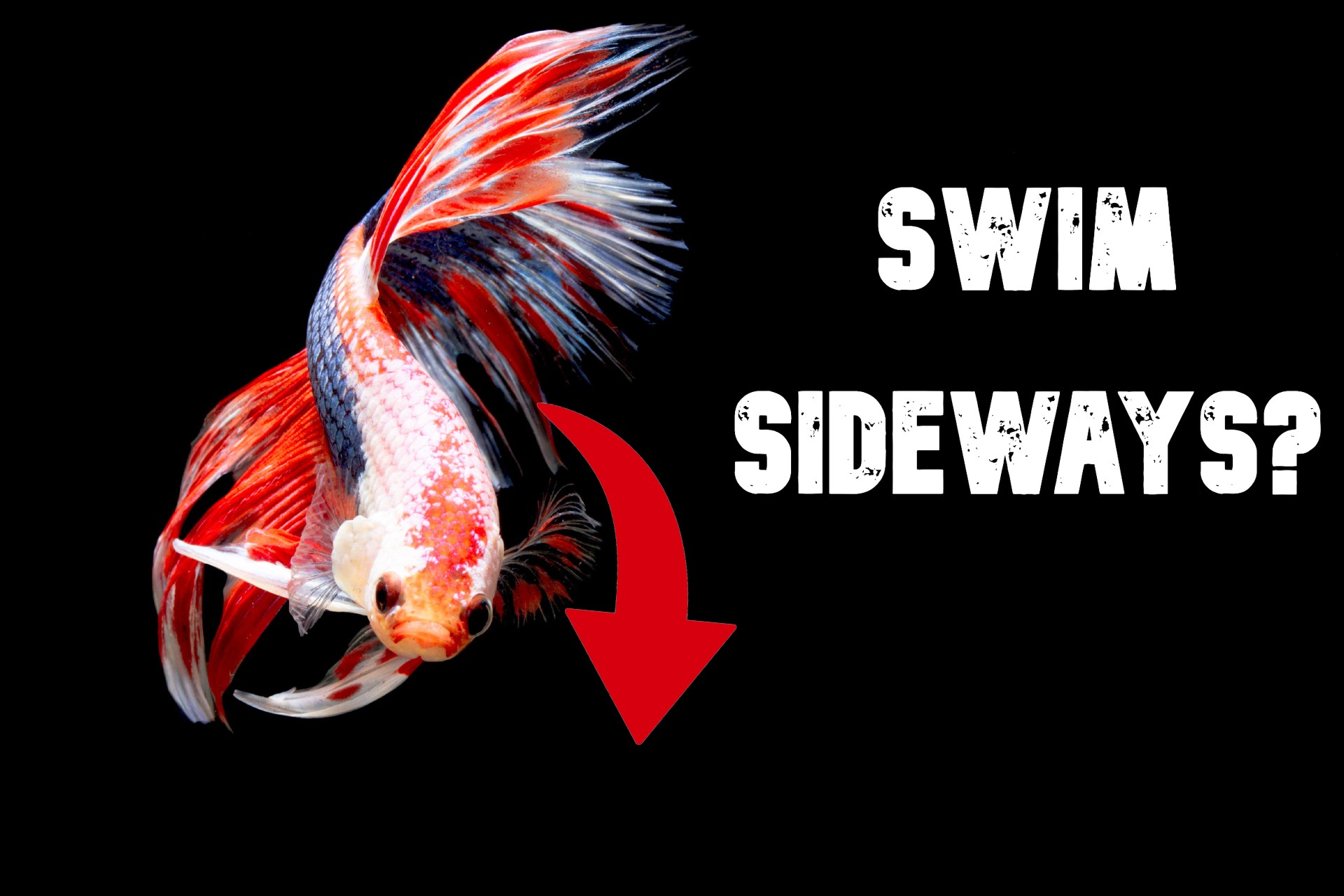Bettas are amazing, interesting little fish that are incredibly intelligent and can be very rewarding pets. Unfortunately, partially due to this intelligence, Bettas can be rather aggressive. They are literally called “fighting fish” in some places due to their affinity for aquatic combat maneuvers. Some Bettas are so territorial that it may seem impossible to safely find tankmates for your stunning little friend.
Can Bettas Have Tank Mates?
Absolutely! Betta fish can live happy, healthy lives without being stressed while still having tank mates! In fact, some fish can actually prove to be beneficial to the overall tank environment. Let’s discuss some of these options and figure out which fish will best suit your setup!
What Fish Can Live with a Betta?
Here are some of the best fish to accompany your Betta in their ten-gallon home. We’ll divide this section into what best suits female Bettas and male Bettas separately since they have temperament differences that change what works for their needs. Keep in mind this is not a comprehensive list and there may be other options; do your research if you wish to add something different!
For Female Betta Fish
- Tetras: Tetra fish are a great species of beginner pets due to their hardy nature and the fact that their natural environment features frequent temperature and water quality changes. Many people have great success housing Red Eye Tetras, Blue Tetras, Golden Tetras, Penguin Tetras, and Lemon Tetras with Bettas, along with many other varieties. Keep in mind, though, that larger species of Tetras like the Red Eyes will need larger tanks, especially if you plan on shoaling them together.
- Rasboras: Sometimes regarded as the “perfect” tank mate for Bettas, Rasboras are great fish that stay on the smaller side and are fairly easy to care for. Popular types like the Harlequin Rasboras and Mosquito Rasboras make for good tank mates since Bettas generally do not attack them and if they are targeted they can get away quickly since they are much faster swimmers than Bettas. Again, larger species may need larger tanks since they do better being shoaled together but smaller varieties can thrive in a ten-gallon enclosure.
- Loaches: These bottom dwellers are a great choice for Betta mates, as they tend to stay out of the Betta’s way and generally thrive in similar conditions. Many varieties of Loaches, like the Dojo, Khuli, and Horseface species, tend to be rather shy and will avoid the Bettas from a confrontational standpoint but some of the more aggressive varieties like the Zebra, Yoyo, and Skunk Loaches may be a bit too temperamental to be kept with Bettas.
- Plecostomus: Sometimes referred to as the vacuum cleaners of the aquarium keeping world, Plecostomus, also known as Plecos, is one of the most widely purchased fish in the world. Their cute faces and lazy activity levels make them an adorable, low-maintenance tank addition and Bettas generally leave them be since they do not pose much of a threat from a territorial standpoint. Smaller Plecos can fit well in a ten gallon with your Betta but since they can get rather large, you may need to plan to size up in the future to accommodate your fish as it ages.

For Male Betta Fish
- Feeder Guppies: Unlike the fancy, long-tailed Guppies you may buy as a pet, Feeder Guppies are short, docile animals that are usually bred to feed other animals like turtles and other fish. Still, these Guppies are highly underrated as pets, especially since they are great in schools or content alone and can live at the same pH and temperature as Bettas. If you want something simple and cute, these little guys are a great choice.
- Corydoras: A popular freshwater fish, the Corydora is a cute little cousin to the catfish that do well in tanks and are rather hardy. They thrive in temperatures and conditions similar to that of the Betta and are great due to their relatively non-combatant nature. If you are going with a tank of ten gallons, it is a good idea to go with the pygmy varieties since they are smaller and can do well while shoaled (it is recommended Corydoras be kept in schools of six or more).
- Tetras and Loaches: Like female Bettas, males can survive well with some species of Loaches and Tetras. Try to stick to docile species that will not nip at your Betta or provoke attacks. Duller colors are good, as well, as they are less likely to trigger a response from your more aggressive, male Betta.
- Alternative Animals: Some people report great success with animals like albino-clawed frogs, snails, larger shrimp, turtles, and some crabs in their tanks. These are good for males and females but should be removed if any signs of fighting or stress appear. Be sure to accommodate your additional animal’s needs when considering tank size and shape, as well.
Tank Sizing Conundrum
Let’s discuss the impact of tank size on suitable tank mates. There is a bit of a misconception that Bettas can be kept in tiny one-gallon tanks or even small half-gallon vases. While these may be aesthetically pleasing, recent studies have shown that anything below five gallons is less than suitable for a single Betta fish.
If you choose to have a five-gallon tank, you may not be able to add tank mates. Bettas are territorial; it is where most of their aggression comes from. Since five-gallon tanks are rather small, your Betta will do better having their home all to themselves. If you absolutely want some other creatures in your tank, it is recommended that you add plants or perhaps snails (Ghost/Nerite are great choices) and larger shrimp (Cherry Shrimp are fantastic) that cannot be easily eaten instead of fish.
Ten gallons and larger, however, give you a little more room to play with potential new additions. We will continue this article with the assumption that you will be using a tank of this size or larger since there are more options available to discuss.

Are there any steps I can take to help make Betta less aggressive?
Unfortunately, some Bettas are just more aggressive than others. They are intelligent and have their own unique personalities, which is both parts of their charm and what makes them a bit more difficult to house with other fish. There has been some success, though, is making sure there are plenty of hides in the tank to help your Betta feel secure. Similarly, Bettas seem to be less aggressive when there are plenty of plants in the tank, as well. Be sure to stick to live plants or artificial ones made of silk, as Bettas are quite active and can damage their fins on harder plastic plant varieties.
Other additions, like Marimo Moss Balls and other non-traditional plants, can be great choices, too, since they provide a bit of movement due to them not being rooted and can help accommodate for the movement of other fish in the tank. If the Betta is more accustomed to their being other moving things, it will be less likely to attack, in theory.
Are Betta Sorority Tanks safe?
Betta Sorority Tanks is a highly controversial and admittedly risky type of taking that involves adding five or more female Bettas into a single tank. While these tanks can work, female Bettas can be just as unpredictable and aggressive as male Bettas, meaning that one day the tank could be a thriving community, and the next two Bettas or more could be at each other’s throats. If you are going to attempt a Betta Sorority, be sure you understand the nuances of Betta care and have plenty of hides and plants for your Bettas to get away from each other.
Is it better to add a Betta to an existing community tank or the additional fish to the Betta tank?
Either is fine, though people generally report more success adding the Bettas into their already established community tanks. Bettas are very territorial and, due to this, can become “attached” to certain hides and areas in their tanks or even their tanks as a whole. Having the community set up first gives them a chance to lay claim to certain areas and allows the Betta to not develop these strong attachments that can lead to aggression. Still, stick to fish that are safe for Bettas, even if you are adding your Betta to an already existing community. Having incompatible fish can lead to fighting, stress, and even fish death.
Conclusion
Bettas are intelligent fish that make for great pets. Unfortunately, they can also be highly territorial and more than a bit aggressive. If you want to keep your Bettas in a communal tank, the best thing you can do is research any species you are considering and only allow safe varieties into the tank. Your Betta will be less likely to become defensive and the tank is more likely to succeed if all can get along easily. Good luck!
Related Topics
If you like the article above, here are some other similar articles you should check out!
Rummy Nose Tetra Care: Lifespan, Tank Mates, Diet, & Health





